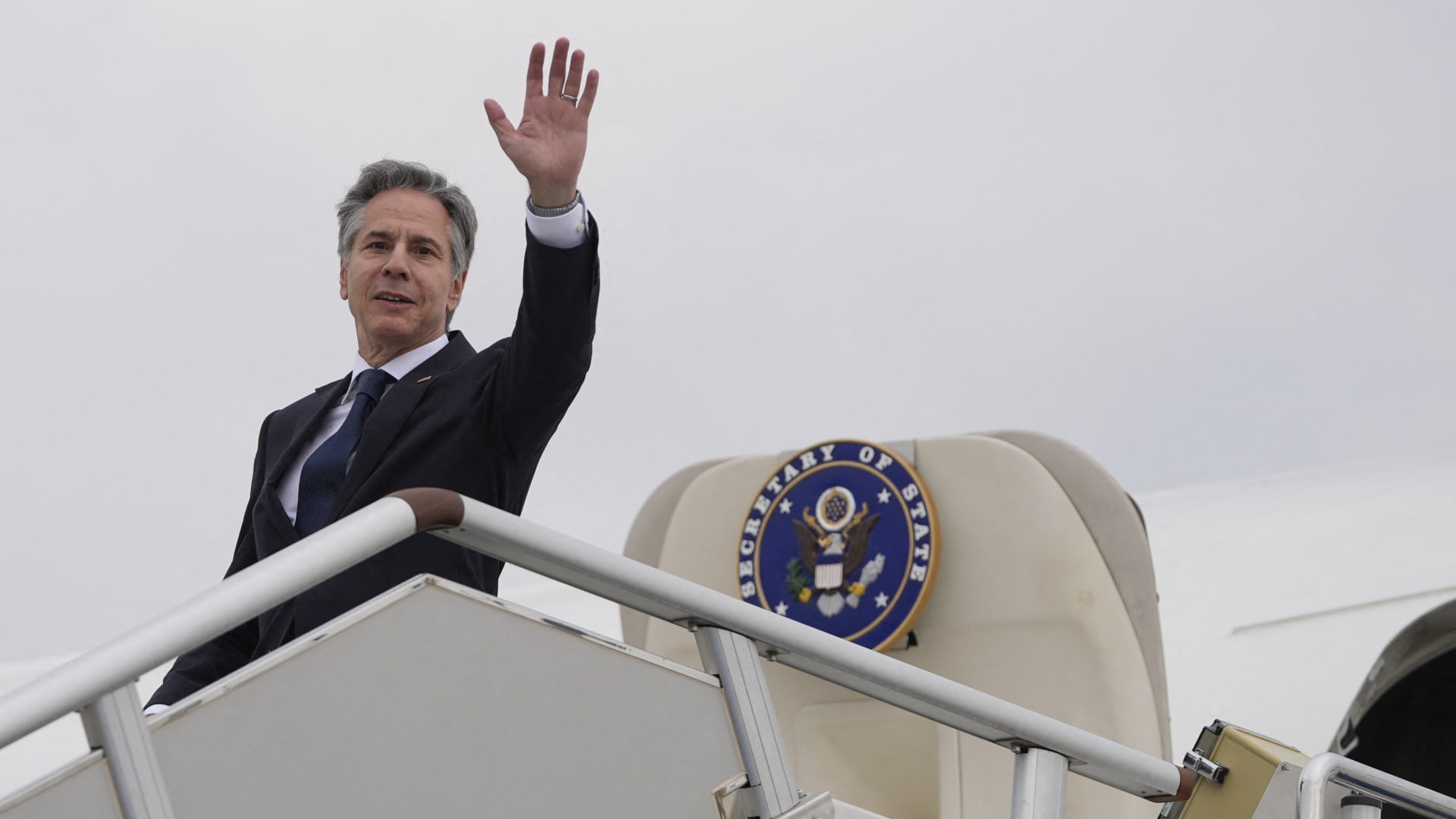The Biden administration is suing the state of Texas over a new state law that would authorize state and local police officers to arrest migrants who enter from Mexico without authorization.
On Thursday, a federal court in Austin will hear whether to stop implementation of the law, which is set to take effect March 5.
The case has far-reaching implications for the future of immigration law and border enforcement and has been closely watched across the country. It comes amid fierce political battles between — and within — parties over how to handle illegal immigration, and follows House Republicans’ impeachment of the Homeland Security secretary and the Senate’s failure to reach a bipartisan deal to bolster security at the border.
Texas has said its law is necessary to deter migrants from crossing illegally, as they did in record numbers last year. The Biden administration argues that the law conflicts with federal law and violates the U.S. Constitution, which gives the federal government authority over immigration issues.
What does Texas law say?
The law passed by the Texas Legislature, known as Senate Bill 4, makes it a crime to enter Texas from any country other than a legal port of entry, usually the international bridges from Mexico.
Under the law, any migrant seen by police crossing the Rio Grande could be arrested and charged in state court with a first-offense misdemeanor. A second offense would be a felony. Once arrested, the migrants could be ordered to return to Mexico during the legal process or face criminal charges if they do not consent to the trip.
Texas lawmakers said they designed SB 4 to closely follow federal law that already bans illegal entries. The new law allows state law enforcement officers across Texas to carry out the current role of the US Border Patrol.
It allows migrants to be prosecuted for the new crime for up to two years after entering Texas.
Lawyers for the Biden administration argue that the Texas law conflicts with numerous federal laws passed by Congress that provide a process for handling immigration proceedings and deportations.
The government says the law affects the federal government’s foreign policy role, citing complaints already filed by the Mexican government against Texas’ border measures. Mexican authorities said they “reject” any legislation that would allow state or local authorities to send migrants, most of whom are not Mexican, back across the border into Mexico.
According to legal experts, the dispute over the law is likely to end up in the US Supreme Court. If so, it will give the 6-3 conservative majority a chance to reconsider a 2012 case stemming from Arizona’s attempt to take responsibility for immigration enforcement. That case, Arizona v. United States, narrowly decided in favor of the federal government’s power to set immigration policy.
Immigration groups, civil rights activists and some Texas Democrats have criticized the law because it could make it harder for migrants persecuted in their home countries to seek asylum and it does not protect legitimate asylum seekers from prosecution in state courts.
Critics also said the law could lead to racial profiling because it allows law enforcement officials far from the border to arrest anyone they suspect of entering illegally in the past two years. The result, they warn, could lead to improper traffic stops and arrests of anyone who looks Hispanic.
Wait, hasn’t the Supreme Court already ruled against Texas?
Not in this case.
Texas and the Biden administration have been battling immigration enforcement on multiple legal fronts for months.
One case involves Texas placing a 1,000-foot-long buoy barrier in the middle of the Rio Grande that Gov. Greg Abbott said would prevent crossings. The federal government sued on the grounds that the barrier violated a federal law governing navigable rivers. In December, a federal appeals court sided with the Biden administration and ordered Texas to remove the barrier in the middle of the river while the case moves forward.
A second case involves Border Patrol agents cutting or removing concertina wire that Texas authorities have installed on the banks of the Rio Grande when officials need to help migrants in the river or detain people who have crossed the border. Texas Attorney General Ken Paxton filed a lawsuit alleging that Border Patrol agents who removed the wire destroyed government property.
This case involved a dispute over an injunction that came to the Supreme Court following an urgent application. Without giving a reason, the justices sided with the Biden administration and allowed border officials to cut or remove the wire if necessary while the case continues to hear arguments at the lower court level.
Why there is more at stake now
Unlike the other cases, the fight over SB 4 involves a direct challenge to what courts and legal experts say is the federal government’s unique role: arresting, detaining and potentially deporting migrants at the country’s borders.
“This will be a significant decision,” said Fatma E. Marouf, a law professor and director of the Immigrant Rights Clinic at Texas A&M University School of Law. “If they comply with this law, it will be a whole new world. It’s hard to imagine what Texas couldn’t do if this were allowed.”
The federal government is seeking an injunction to prevent the law from coming into effect next month.
Arguments about a possible injunction were heard Thursday by Judge David A. Ezra of the Western District of Texas, appointed to the bench by President Ronald Reagan.
“To the extent that Texas wishes to assist in immigration enforcement, it can do so by working with the federal government,” Justice Department lawyers wrote in a request for a preliminary injunction, “or by working with Congress to change the law. “
However, the department added that Texas “shall not unconstitutionally usurp the federal government’s authority in core areas of federal control, namely the entry and removal of noncitizens.”
Texas lawyers from Mr. Paxton’s law firm argued in their motion challenging the injunction that the new law does not conflict with existing federal law.
The state’s lawyers also called the record number of migrants arriving at the Texas border “a full-scale invasion by transnational criminal cartels” and argued that Texas has the power to defend itself. They pointed to Article I, Section 10 of the US Constitution, which prohibits states from waging war on their own “unless actually attacked.”
The state has invoked the same constitutional provision in the other pending cases between Texas and the federal government. But legal experts said the argument is new and may not play a prominent role in this case.
Judge Ezra, who also presided over the buoy barrier case, rejected the “invading forces” argument in his decision in that case.
“Such a claim is breathtaking,” he wrote.
Source link
2024-02-15 10:04:21
www.nytimes.com














